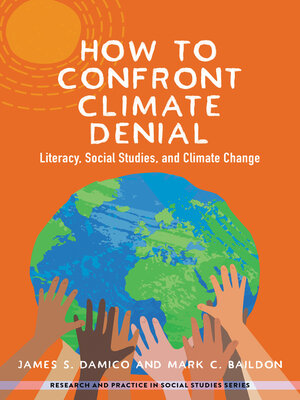How to Confront Climate Denial
ebook ∣ Literacy, Social Studies, and Climate Change · Research and Practice in Social Studies
By James S. Damico

Sign up to save your library
With an OverDrive account, you can save your favorite libraries for at-a-glance information about availability. Find out more about OverDrive accounts.
Find this title in Libby, the library reading app by OverDrive.



Search for a digital library with this title
Title found at these libraries:
| Library Name | Distance |
|---|---|
| Loading... |
Climate change and climate denial have remained largely off the radar in literacy and social studies education. This book addresses this gap with the design of the Climate Denial Inquiry Model (CDIM) and clear examples of how educators and students can confront two forms of climate denial: science denial and action denial. The CDIM highlights how critical literacies specifically designed for climate denial texts can be used alongside eco-civic practices of deliberation, reflexivity, and counter-narration to help students discern corporate, financial, and politically motivated roots of climate denial and to better understand efforts to misinform the American public, sow doubt and distrust of basic scientific knowledge, and erode support for evidence-based policymaking and collective civic action. With an emphasis on inquiry-based teaching and learning, the book also charts a path from destructive stories-we-live-by that are steeped in climate denial (humans are separate from nature, the primary goal of society is economic growth without limits, nature is a resource to be used and exploited) to ecojustice stories-To-live by that invite teachers and students to consider more just and sustainable futures.
Book Features:







